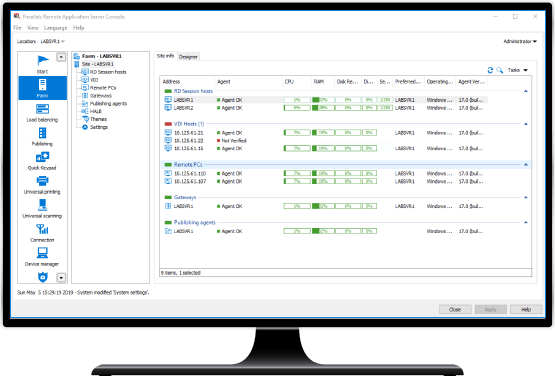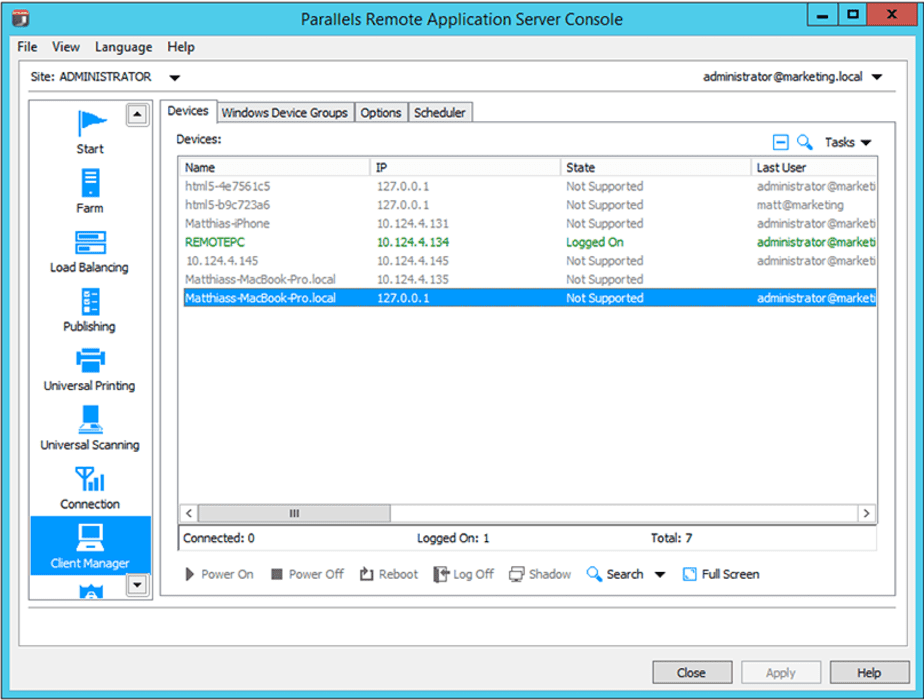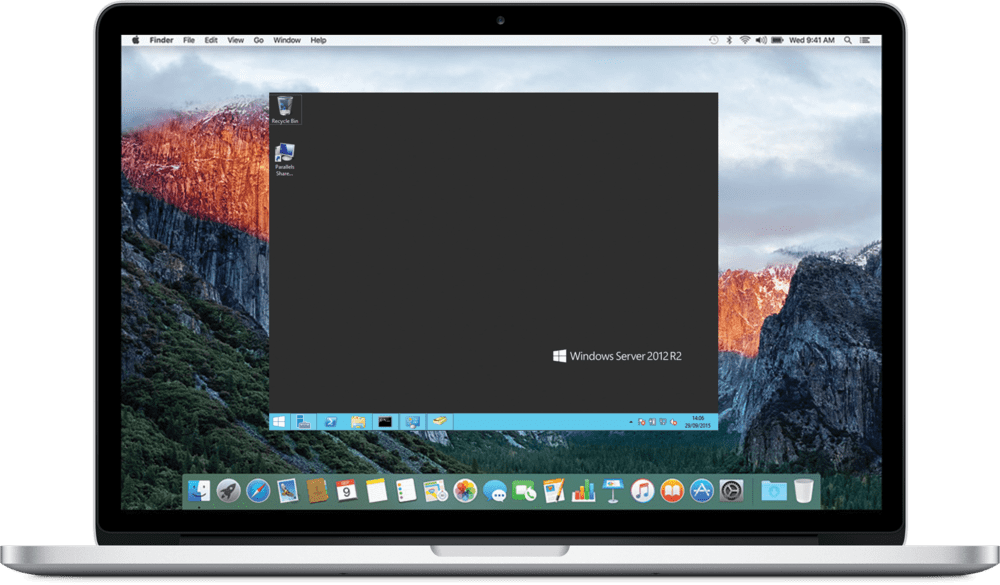Windows 11 Kiosk Mode with Parallels RAS
Parallels® Remote Application Server (RAS) provides Windows device management capabilities. Windows 11 kiosk mode transforms Windows machines into remote clients, increasing PC manageability and security.

Extended Windows PC Lifecycle
Achieve cost savings in hardware replacement by converting Windows PCs into pseudo-thin clients. Legacy machines using older operating systems (OSs), such as Windows 7, pose a security threat—but replacing them is expensive.
With Parallels RAS, organizations can continue using Windows legacy OSs to securely run virtual applications while also restricting access to native OS features. Administrators can choose which applications a user runs locally and remotely on a PC.

Device Management
Centrally manage connected PCs with an extensive policy setting to mass manage sessions and Windows devices. Administrators can check the status of all Windows devices and sessions (i.e., booting, restarting, logged on) and automate the power cycles. Session management allows administrators to interact with any ongoing connections from the Parallels RAS Console.
Access can be secured and customized further by enabling kiosk mode, which disables power cycling functions such as reboot and shutdown. Kiosk mode enables users to perform a limited set of functions specified by an administrator, ensuring access to sensitive corporate data is secured.

Remote Access
Enable instant, easy, and secure remote access to Windows PCs. Shadowing (remote access) allows technicians to take control of Windows PCs directly from the Parallels RAS interface. While Windows Server also offers session shadowing, it is limited and confined to Remote Desktop Services (RDS) sessions.
With Parallels RAS, admins can gain full access to a Windows desktop and control applications running locally on the device, as well as any remote applications published from Parallels RAS. Moreover, admins can control log off, power off, power on and change system settings on Windows devices.




